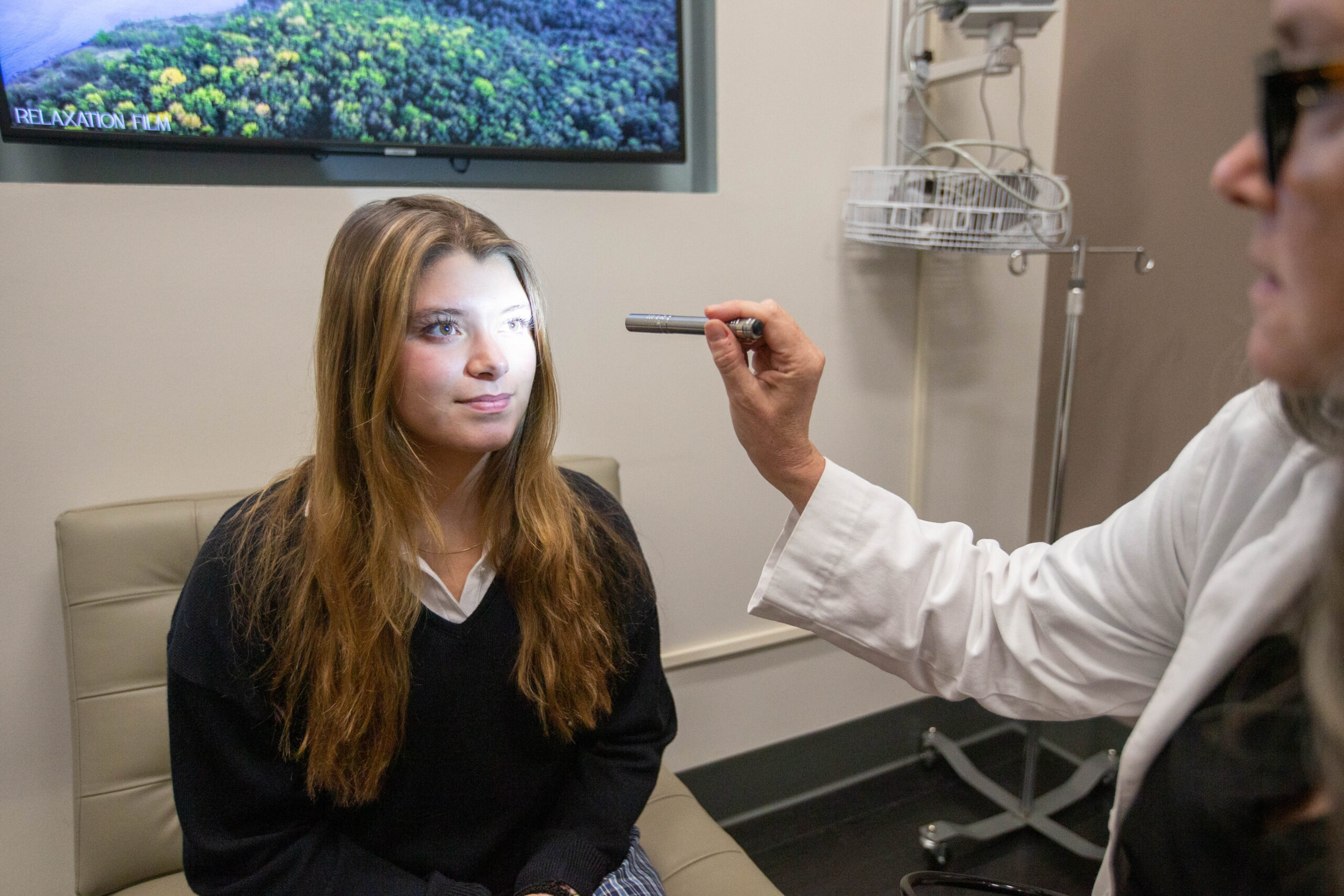To be or not to be – today, that’s not the question. The real question is this: in an increasingly medicated world, how do we treat Attention Deficit Hyperactivity Disorder (ADHD) both safely and effectively? From diagnosis to medication management, the treatment process faces real challenges, but ZüpMed’s approach incorporates genetic testing to ensure you’re getting the right prescription.
Diagnosing ADHD
Without an accurate ADHD diagnosis, we’re putting the cart before the horse. The first step of any treatment plan is a comprehensive evaluation by an experienced mental health provider to determine if you fit the criteria outlined by the DSM-5. Age plays a significant role, however, so the diagnostic process differs for children and adults.
ADHD In Kids
It takes a village, right? We agree, and not just when it comes to raising the future leaders of the world – but in diagnosing them with ADHD, too. It can be challenging to diagnose someone with a behavioral disorder when they aren’t old enough even to know how to spell the word “behavior,” so in lieu of conscious self-reporting, mental health professionals rely on a wide-reaching set of data points and developmental markers to get the facts straight.
This collaborative process often includes clinical interviews or behavioral observations with child psychologists, as well as parent, teacher, and caregiver assessments through surveys and questionnaires. Each of these outlets gives us a window into the mind of the child, and these windows help us determine the path to an accurate ADHD diagnosis. And once we’ve got the data, it’s the job of your child’s psychologist to rule out any other possible conditions before moving on to a hard and fast diagnosis.
Then, with parental consideration, we can move on to medication management.
ADHD In Adults
If you thought diagnosing kids was complicated, adult diagnostics are a different beast. Although adults have the self-awareness to report their own symptoms, these symptoms are often less overt than they appear in children, making them more difficult to identify. Sometimes, they can even be confused with other conditions or mood disorders, which, as you can imagine, can cause quite a medication quandary.
Mental health professionals also consider the adult’s life history, including academic, occupational, and social aspects, to understand long-term behavior patterns that might indicate ADHD. When they feel comfortable moving forward with a diagnosis, it’s time to move on to treatment.

The Wide World of ADHD Medications: It’s Not Just Adderall, You Know
So, you’ve received a diagnosis of ADHD from a qualified medical professional. Or your kid has, or your mom. What’s next?
Enter the wide world of ADHD medication. While people are generally most familiar with Adderall (amphetamine-dextroamphetamine), there are actually several prescriptions available on the market. Others include Ritalin (methylphenidate), Focalin (dexmethylphenidate), and Vyvanse (lisdexamfetamine), among others, and each has a slightly different chemical makeup that may interact differently with your body’s metabolism. This interaction is key to how well – and how safely – these medications work for you.
Pharmacokinetics & the Drug Response
When you take a drug – any drug – your body has its own shipping and handling process, which determines how your system absorbs, distributes, metabolizes, and excretes these chemicals. The most relevant of these processes in terms of your ADHD medication is metabolism.
While we don’t want to walk you all the way back through your college Bio class, you should know that certain genetic markers known as pharmacokinetic genes can alter your body’s ability to metabolize drugs, which in turn influences their efficacy and safety. Some people have slow metabolisms, meaning they might require less of a drug for it to work effectively. Some have faster metabolisms, meaning they’ll need more to get the same effects. Additionally, depending on your unique genetic makeup, you may respond differently to Ritalin than to Vyvanse or Qelbree than to Adderall.
Before now, the only way to determine which drug would work best for you or your child was through trial and error, which could take months or years and potentially endless frustration. Fortunately, the technological advancements that we utilize at ZüpMed have made it possible to determine the best medication pathway based on your personal genetic markers, and boy, are we proud to unveil it…
PGx Testing for ADHD
Pharmacogenetic (PGx) testing is a tool that identifies those pharmacokinetic genes that we referenced earlier to predict how your body might respond to certain ADHD medications. This works in large part by determining your rate of metabolism, using your genetic makeup to indicate which prescription medication is the most likely to provide you with the safest, most effective pathway to managing your ADHD symptoms.
How It Works
When you visit our office for medication management, we’ll order a PGx panel. This process is very simple – all we have to do is swab your cheek and wait 14-21 days for the results to come back. No fuss, no muss, and not a needle in sight. You can thank us later. (If you’ve already had testing completed, we can interpret those results instead!)
The Benefits of Cutting to the Chase
If you’ve been with us for a while, you know that we believe in the power of optimizing your medications as a core part of your comprehensive healthcare plan. That’s because not all prescriptions work well together or with your genetic makeup, and the more we layer medication after medication, the likelier patients are to have adverse drug reactions and an overall decreased quality of life. You don’t want that, and we don’t either.
By using tools like PGx testing, we can cut right to the chase. Rather than turning your body into a human lab experiment and relying on trial and error to find the right ADHD medication for you, this technology allows us to prescribe you the medication with the best possible chance of success at the beginning of treatment, offering a less frustrating, safer, and more effective treatment pathway for you and your loved ones.

Get the Medications Right at ZüpMed
Remember, kids: life is too short to spend all your time stuffing your medicine cabinet or shuffling from prescription to prescription. With the modern solutions available at ZüpMed, you can get the right medications to fit your unique gene pool with PGx testing and comprehensive medication management.
Call our office to book your PGx panel and take the first step toward ADHD treatment today.
 Schedule Now
Schedule Now
